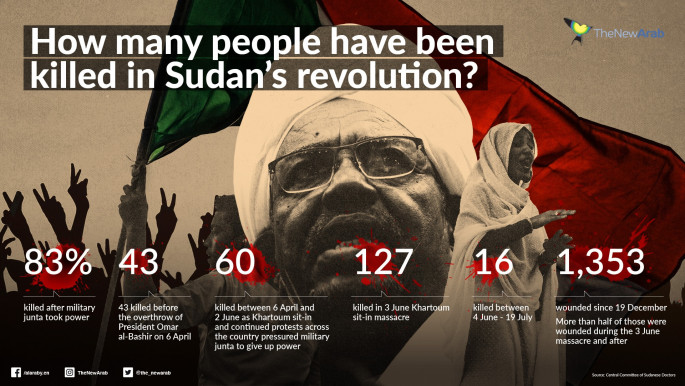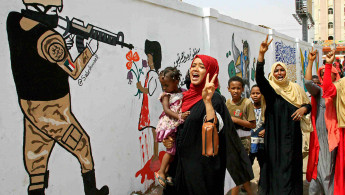Sudan protest leaders will not join transitional council
Sudan's leading protest force has said it will not participate in the leadership of the country's new three-year transitional government.
The country's army rulers and opposition leaders on Sunday inked a hard-won constitutional declaration, paving the way for a promised transition to civilian rule.
The agreement builds on a landmark 17 July power-sharing deal and provides for a joint civilian-military ruling body to oversee the formation of a transitional civilian government and parliament to govern for a three-year transition period.
But the opposition umbrella body the Alliance for Freedom and Change's (AFC) negotiations with the military junta, which took power in April, have not been without controversy.
A military general is scheduled to remain in the top leadership spot for the first 21 months of the three year transitional period. Many in Sudan are not sure if the military can be trusted to hand over power to civilians as agreed.
More than 200 people have been killed since the junta seized power from former President Omar al-Bashir. At least 127 of them were massacred on 3 June, when paramilitary troops raided a peaceful protest in the capital Khartoum.
The Sudanese Professionals Association (SPA) - an opposition union that has organised and led protests since Sudan's revolution erupted in December last year - on Wednesday declared it would not be participating in the sovereign transitional council.
Read more: Sudan's recent violence against protesters casts a shadow over power-sharing deal
The sovereign council will be the ultimate authority governing Sudan's transition to a civilian government.
The SPA, a key component of the AFC which has represented protesters during negotiations with the military, said it would however participate in the transitional legislative council, a parliament-type body that will decide on day-to-day matters.
The SPA will be participating in the legislative council as an "independent supervisory authority", it said in a statement published on Wednesday.
"This decision came after careful, in-depth consideration into the role of the Sudanese Professionals Association [SPA] in the coming period," the association said, adding that it would function as an "watchdog" and "guard" during the transitional period.
"Throughout the transitional period, we pledge to contribute to restoring rights, establishing good governance, consolidating democracy, equality, freedom, peace and justice. In order to achieve these aspirations, we will work with all sections of Sudanese society and all the living forces who are willing to achieve comprehensive change," the SPA explained.
In addition to legislating day-to-day affairs, the legislative body will also act as a check-and-balance system on the executive and sovereign councils, and control the announcement of any state of war or emergency, according to the constitutional declaration.
The power-sharing deal also stipulates that the membership of the legislative body should consist of a majority of AFC members.
The alliance is a broad coalition of political parties, unions, rebel groups and other opposition bodies.
 |





 Follow the Middle East's top stories in English at The New Arab on Google News
Follow the Middle East's top stories in English at The New Arab on Google News


